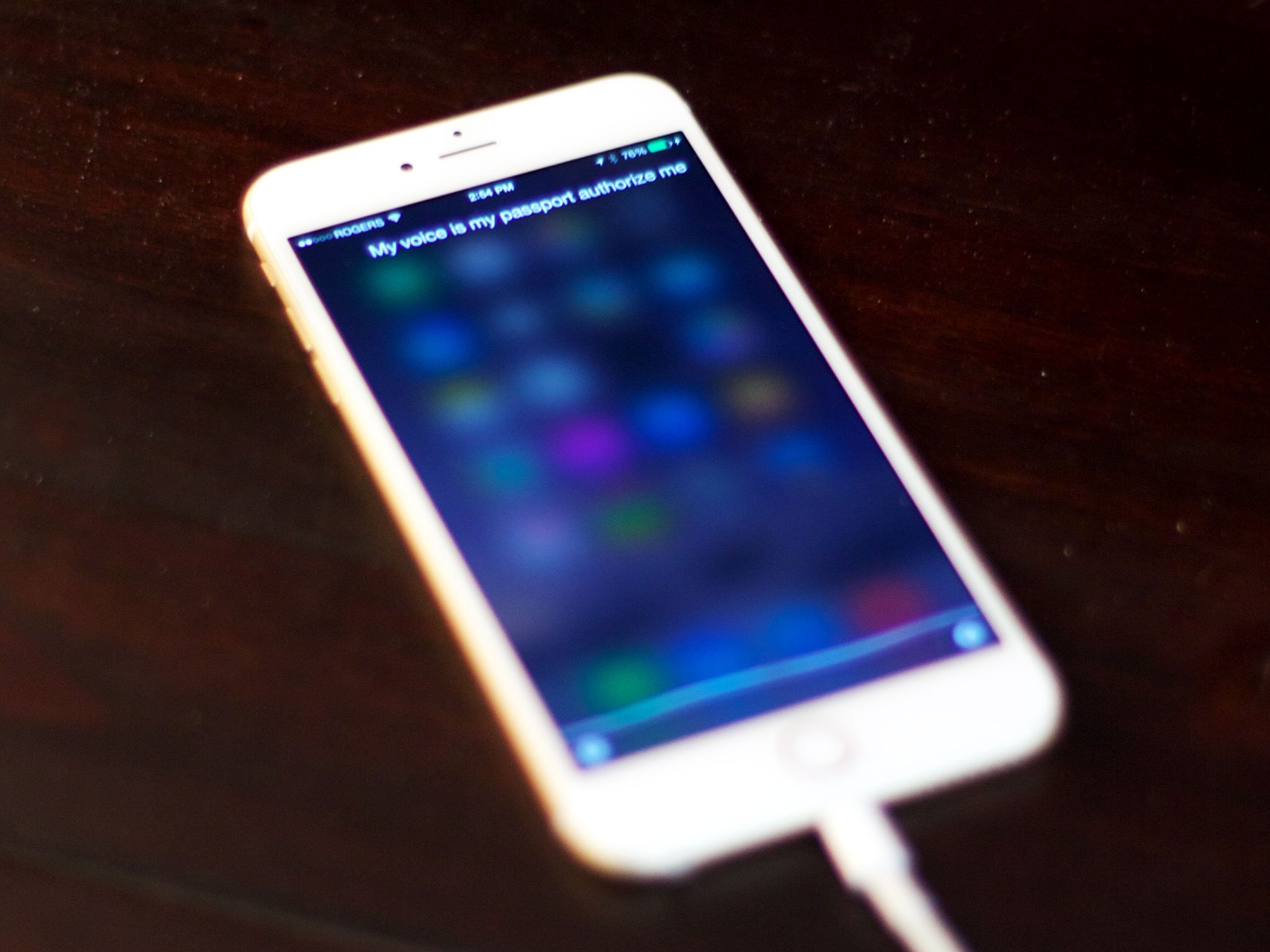Windows 10 adds Cortana — is it time for Siri on the Mac?

This week Microsoft unveiled big plans at its Windows 10 event, and announced that Cortana — its answer to Siri for Windows Phone — would make its way to the computer, as well. Is it time for Apple to bring Siri to the Mac?
Siri has been a mainstay of iOS since the iPhone 4S was introduced in 2011. It's a natural language interface that makes it possible to talk to your iPhone or iPad device rather than tap on the screen. For a long time you had to hold down the Home button (or Touch ID sensor) on your iOS device to activate it, but starting with iOS 8, Apple introduced a handsfree mode that activates when you say "Hey, Siri" (provided the device is plugged in to a power source).
Siri started out as a fun novelty, but over time it's grown in usefulness. The handsfree mode makes it much easier to interact with the phone when you're doing something else. There's a case to be made for using it while driving, though I don't recommend that drivers do anything that distracts them from driving. I personally use it at home, sometimes to send iMessages, set reminders and alarms, even to change up my music playlist when I'm working out.
But Siri remains mated specifically to my iPhone (and iPad). Thanks to a long history of accessibility enhancements designed to help users with limited mobility, Apple certainly has no shortage of voice control for the Mac — you can use voice dictation to speak instead of typing, and that extends to deep integration with the user interface as well.
Siri is different: It's not just a handsfree voice-based user interface. It's a deep knowledge navigator that can interpret what you're asking and offer contextual responses in more sophisticated ways than you can on the Mac, pulling data from web sites when you ask it questions, interacting with content that's already on your device in meaningful ways.
We've long heard rumors that Apple has tested Siri integration with the Mac; I remember reading about the possibility back when OS X Mavericks was still in development. Whether that's wishful thinking or indicative of a shelved internal Apple project is conjecture at this point, of course.
With OS X Yosemite, Spotlight began offering answers that were Siri-like, but without the voice control features. We also saw one possible way forward: Continuity. Apple's blurred the lines between iOS 8 and OS X by offering tight integration that makes it less important what device you're using, focusing on tasks instead — so you can take and make calls on your Mac if your iPhone is nearby, or open up a Safari web page or continue working on an e-mail on your Mac that you started on your iPad.
iMore offers spot-on advice and guidance from our team of experts, with decades of Apple device experience to lean on. Learn more with iMore!
These are exciting features, and while Apple hasn't worked out all the kinks, it could pave the way for Siri to be accessible on the Mac even if it's not actually on the Mac.
Another piece of the puzzle concerns an emerging technology that we've been hearing about from Apple since it first took the wraps off at WWDC last year: HomeKit — a development framework created for iOS 8 to help control accessories in the home. There's a huge buzz in the consumer electronics industry about "the Internet of everything:" The idea that soon, all of our devices from thermostats to lights to appliances will be connected and communicating. HomeKit is Apple's attempt to bring some measure of integration between its own products and that technology.
HomeKit is still at a nascent stage, but at this year's Consumer Electronics Show developers working on HomeKit-compatible products demonstrated the ability to remote-control features from outside the house using Siri — provided you have a third-generation Apple TV running at home. Apple TV isn't set up as a home automation hub, and doesn't work with Siri independently, but still acts as a vital link the framework to help this technology work.
Maybe the question isn't whether Siri needs to come to the Mac at all, but just to be accessible regardless of what device you're using. If that's the case, we may be seeing Siri make it to the Mac after all, even if it's not in the way we first thought.

